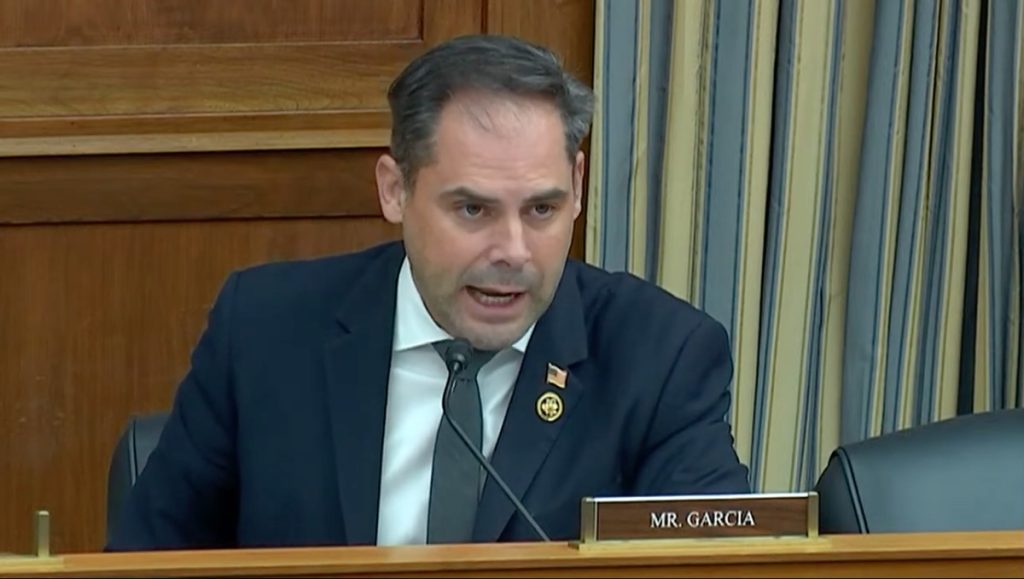WASHINGTON — Officials and advisers say that the issues NASA is having with Mars Sample Return (MSR) are part of a longer-term problem the agency faces with science missions that sometimes push too far.
A hearing by the House Science Committee’s space subcommittee on March 21 focused heavily on the delays and higher costs experienced by MSR, which have impacted other parts of NASA’s science portfolio.
Rep. Brian Babin (R-Texas), chair of the space subcommittee, said in his opening remarks, “This committee acknowledges the great value of the MSR mission. We hope that these issues will be resolved and the MSR mission will succeed. Congress needs to consider the cost of the mission in relation to its scientific value, and can't simply justify cost overruns and schedule delays by claiming that the end result of these missions will be worthwhile.”
Nicola Fox, NASA associate administrator for science, gave few updates on the status of an ongoing review to restructure MSR, which was initiated by an independent review last fall that found the mission was behind schedule and overbudget.
“We are wrapping up and compiling the results” of the reassessment, she said. “They will be available in the spring.” NASA Administrator Bill Nelson spoke at a March 11 briefing about the agency’s fiscal year 2025 budget request and mentioned that the agency would release details, including planned MSR funding levels for 2024 and 2025, in April.
Due to significant differences in funding between the House and Senate versions of spending bills, NASA reduced spending on MSR in November during a continuing resolution (CR). This led to the Jet Propulsion Laboratory, the lead center for MSR, laying off 8% of its workforce in February.
Rep. Mike Garcia (R-Calif.), a member of both the House Science Committee and House Appropriations Committee, criticized NASA for decreasing MSR spending in November, saying he was “blindsided” by that decision. “You left us in the dark, frankly, with some reprogramming that took place under loopholes during the CR,” he said. “I would have really appreciated a heads-up that we were going to lay off close to 600 employees at JPL before that decision was made.”
Fox stated that NASA did brief Congress multiple times about MSR and explained that the decision to reduce funding was based on a Senate bill that only provided $300 million for MSR, significantly less than the House bill and NASA’s request. She mentioned that maintaining spending at the 2023 level under the CR risked violating the Anti-Deficiency Act, which bars agencies from spending above or in advance of appropriations, by February.
Garcia argued instead that NASA violated the Impoundment Control Act, which limits the administration's ability to withhold the expenditure of funds appropriated by Congress.
“Many of these jobs have already been lost,” he said. “I don’t know how we can successfully carry out MSR without that workforce. We're already facing challenges.” He highlighted that he and 22 other members of the state’s congressional delegation sent a letter to Nelson the day before, requesting that NASA allocate at least $650 million — around halfway between the original Senate and House funding levels — for MSR in its operating plan for 2024, using the flexibility given to NASA in the final 2024 appropriations bill.
MSR, however, is simply the most recent in a series of ambitious NASA science missions that have experienced delays and cost overruns, like the James Webb Space Telescope (JWST). “NASA has difficulty creating complete, believable, and transparent estimates” for such missions, said George Scott, the agency’s acting inspector general. This is at least partially linked to a tendency to be optimistic that leads to underestimating the challenges these missions face.
In 2020, NASA conducted a comprehensive mission study to address these issues and improve project management. “However, NASA has not yet integrated the study's recommendations into its practices and guidance for flagship missions,” he noted.
Tom Young, a retired industry executive who has been involved in numerous NASA program reviews, believed that NASA was learning from the issues with JWST and other missions. However, he stated that flagship missions “will never be without challenges and difficulties” as the agency pushes boundaries. “We are learning from it, but I do want to emphasize that these missions will never be simple.”
He later mentioned in the hearing that JWST, in particular, was a significant leap for NASA. “However, if we had not taken a significant leap, we would not have the extraordinary results that we have today.”









